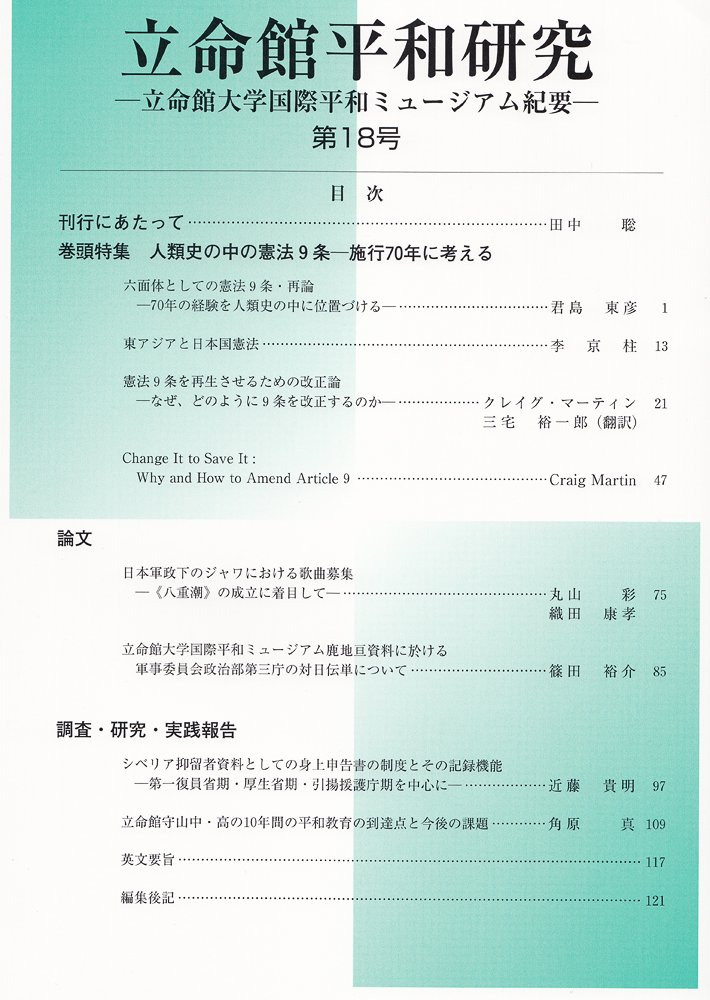(Published in The Japan Times, Aug. 5, 2019)
Prime Minister Shinzo Abe has demanded that the Diet move forward with debating his Liberal Democratic Party’s proposal for amending Article 9 of the Constitution, with a view to possibly having a vote on the issue in 2020. Having failed to retain a two-thirds supermajority in the Upper House election on July 21, he will need to sway some members outside of his coalition to win approval of any such amendment, and thus the debate will be more meaningful, its consequences more significant.
Many observers will be struck by how modest the new amendment proposal seems, and thus may be lulled into thinking that there is little to fear from it. This is a grave mistake. Once analyzed in its broader context, the ramifications of the proposal look much more dangerous.
To begin, it will be recalled that Article 9 has two paragraphs. The first provides that Japan renounces war and the threat or use of force as sovereign rights of the nation. The second, which has been more controversial and far less effective, has two clauses: first, a prohibition on the maintenance of land, sea or air forces or other war potential; and second, a denial of the rights of belligerency. While many legal scholars view the existence and size of the Self-Defense Forces as being patently inconsistent with this provision, that is not the official view.


